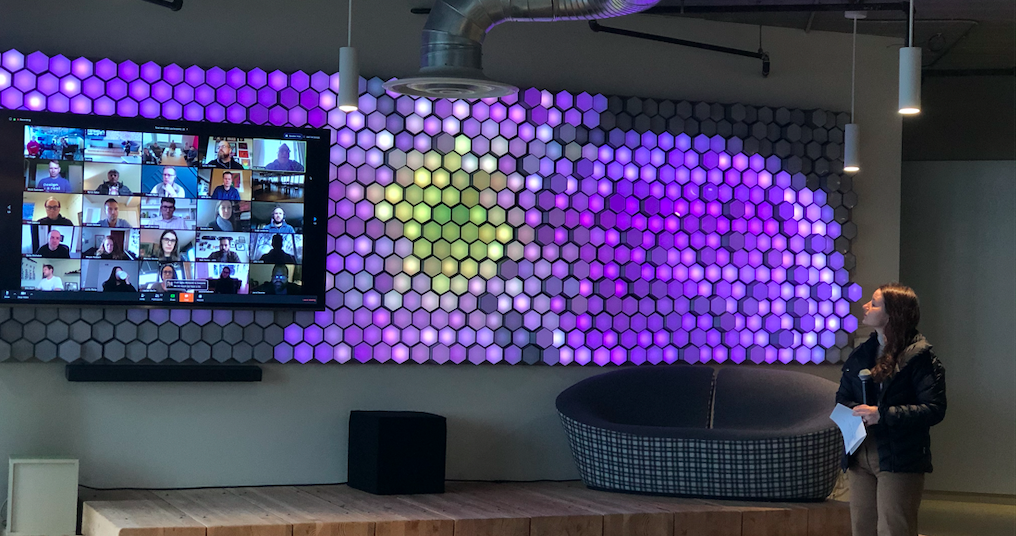
March 25 Update
Blink’s response plan for the Coronavirus (COVID-19)
- All of Blink’s offices will remain closed until further notice, and we do not expect this to happen before mid-May.
- We continue to follow guidelines from local officials and put the health and safety of our employees first.
Remote working with Blink:
Because Blink has several offices across the country and routinely conducts remote research sessions around the globe, we are well set up for these kinds of meetings and have worked hard to ensure our remote interactions provide a great user experience for our clients, employees, and research participants.
We have excellent hardware and software solutions, and our employees are well trained and skilled at working this way. If you need help navigating the world of remote meetings, please let us know, and we will be happy to provide guidance on how to get set up.
March 12, 2020
- All of Blink’s offices are now temporarily closed.
- Employees in Austin, Boston, San Diego, San Francisco, and Seattle will now work from home until further notice, for at least two weeks.
- All airline travel between Blink offices is now banned.
- All in-person research sessions will be moved to remote studies or postponed, and all client meetings will be remote.
March 11, 2020
- The Seattle office is closed.
- Based on local closures, and in support of social distancing to prevent the spread of viruses, Blink has decided to close the Seattle office by the end of today, March 11, for at least two weeks.
- All travel to or from the Seattle office is now banned.
- All other Blink offices will remain open, but we expect they will follow suit within days or weeks depending on local conditions.
- In-person research outside of Seattle will continue, but no researchers from Seattle will conduct sessions in-person.
- All Seattle based meetings will move to remote meetings.
March 10, 2020
Dear clients, friends, and family of Blink,
Blink takes the health and well-being of our employees and clients very seriously. In this time of heightened risk for coronavirus/COVID-19 infection, we will be actively monitoring our public health information sources daily to ensure that we are staying abreast of the most up-to-date information.
We have set up a Blink task force, including a dozen members of Blink’s leadership team, which meets daily to review the most recent health information and determine communication strategies so that everyone inside and outside of our company receives accurate and timely information.
Our approach is to respond proactively and err on the side of an abundance of caution. Our goal is to provide maximum flexibility and adapt to our clients’ changing constraints of doing business during this unpredictable time. I am confident that Blink will fully deliver on our project commitments in all cases.
We want to help our staff prevent the spread of the virus within our community, meet our clients’ requests, and ensure the safe and effective continuance of our work. Blink’s response plan is based on information we receive from credible sources where Blink’s offices are located, including King County Public Health and the Washington State Department of Public Health, the San Francisco Department of Public Health, the County of San Diego Department of Environmental Health, the California Department of Public Health, Austin Public Health, and the Massachusetts Department of Public Health.
We are working hard to stay ahead of the situation and keep everyone connected to Blink informed. If the virus spread does happen as the CDC is predicting, we expect there may be a more extensive impact on domestic travel, as well as a drop in people’s ability and desire to come together for in-person meetings or other activities.
Because Blink has several offices across the country and routinely conducts remote research sessions around the globe, we are well set up for remote meetings and have worked hard to ensure our remote interactions provide a great user experience for our clients, employees, and research participants. We have excellent hardware and software solutions, and our employees are well trained and skilled at working this way. If you need help navigating the world of remote meetings, please let us know, and we will be happy to provide guidance on how to get set up.
Following health departments’ current advice, we will continue to conduct our usual in-person meetings when our clients choose to do so, and we are still conducting in-person research in our five office locations: Austin, Boston, San Diego, San Francisco, and Seattle. We have implemented additional participant screening questions around health and wellness before anyone comes in and have a variety of sanitization protocols in place in each office.
As always, we encourage your questions and feedback, and we look forward to partnering with you and continuing to run our companies through these challenging times.
Sincerely,

Karen Clark Cole
CEO, Blink
Blink’s response plan for the Coronavirus (COVID-19)
- All international travel is canceled at this time.
- We recommend avoiding nonessential domestic travel.
- We encourage all staff members to work from home if their job responsibilities allow for it.
- We require any staff member or contractor to not come to the office if they are experiencing any COVID-19 symptoms or have been exposed to anyone who has experienced symptoms or a confirmed case within the last two weeks.
- We have canceled all in-office social events at all of our locations.
COVID-19 symptoms
COVID-19 symptoms include mild to severe respiratory illness with coughing, shortness of breath, and fever. The symptoms may occur one to 14 days after exposure but occur most commonly after five days. If you develop the illness, you should consider yourself contagious for 14 days. The spread of COVID-19 continues to result in additional cases. Many of these cases include the milder version of the disease and may not get reported, as they don’t result in hospitalization.
